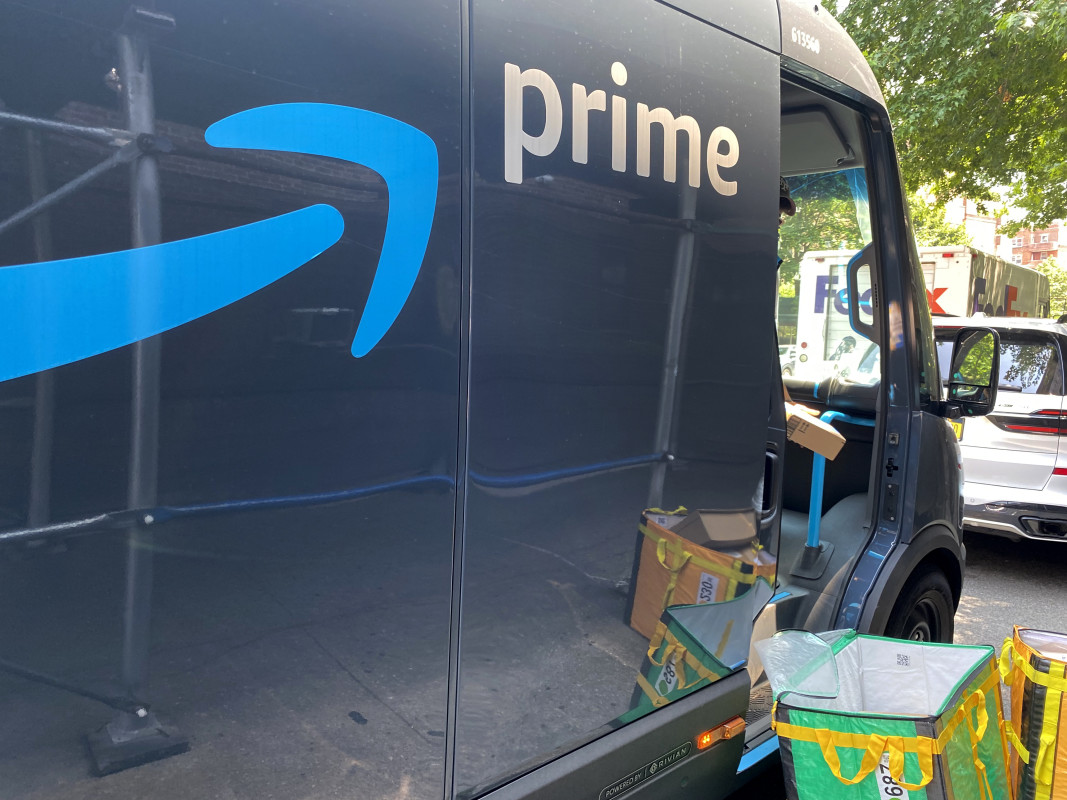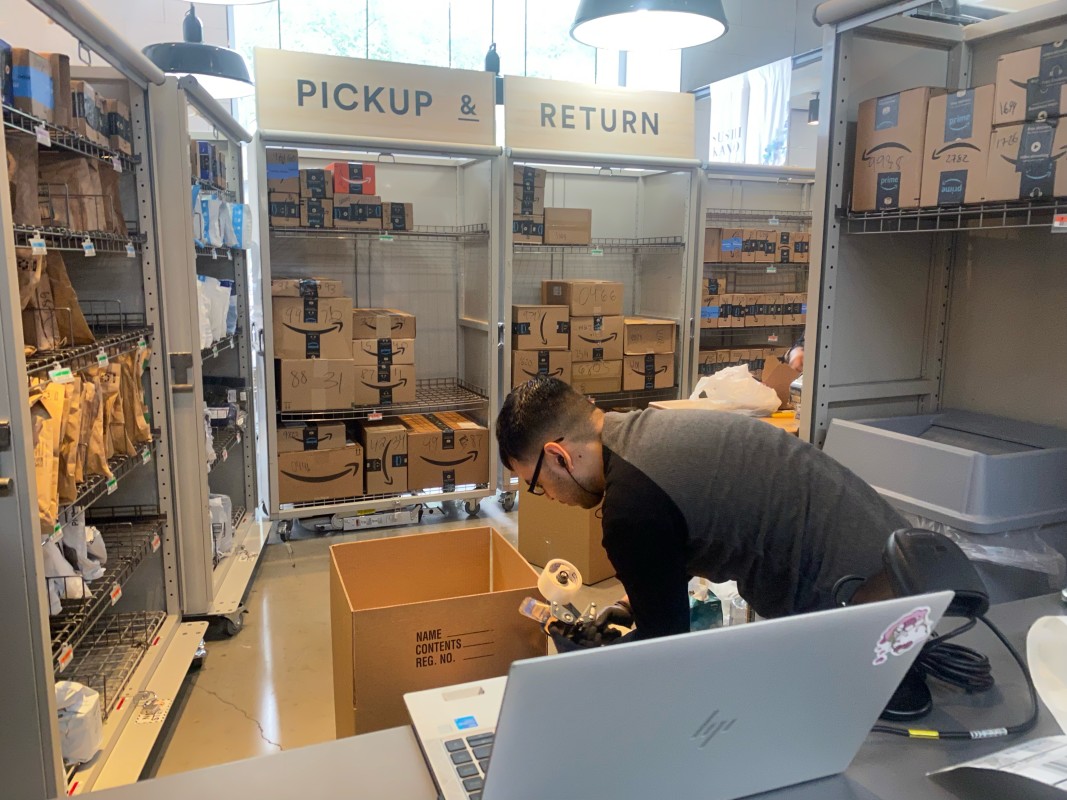
There are a few modern inconveniences many of us probably don't even take the time to think about.
Take, for instance, a simple online order that arrives just a little too big, or in the wrong shade of color, from Amazon (AMZN) .
Related: TJ Maxx and Marshalls follow Costco and Target on upcoming closures
Once we get over that initial excitement that the item is at our door in next to no time, we take the package inside and realize it's wrapped inside a plastic Amazon package. The package is difficult to open, but nothing a handy pair of kitchen shears can't handle. We tear open the package, try on the item, and decide it's headed for the returns bin.
Amazon likes to think that we neatly repackage that item, tags included, unworn, back into that same plastic bag it arrived in. Many of Amazon's plastic packages are actually intended to be flipped inside out for returning purposes.
The retail giant has even started placing transparent red tear-off sticky strips on the inside of each plastic package in hopes that a customer won't even need to use his or her own tape to reseal their returns.
But the fact is many of us do not do that. We either decide we want to return something far too late — long after the initial plastic package has been placed in the recycling bin — or we simply bring it back as is, no packaging included.
Amazon has made great efforts to grab customers' attention and urge them to recycle their plastic packages. Most bubble-wrapped Amazon bags have the chasing-arrows recycling symbol on them with the clear phrase "store drop off," in the event a customer wants a return.

Report alleges most Amazon bags aren't recycled
But there's an issue with that. Even if customers have the best intentions — those who either return their goods in the Amazon bags and those who place them in their own at-home recycling bin — the odds are those bags aren't making it into a sustainable, recyclable journey.
That's according to a recent report by Public Interest Research Group called "Truth in Recycling."
PIRG says that throughout 2023 it tracked Amazon's plastic-packaging process by placing tracking devices, namely Apple AirTags, in 93 bundles of its plastic bags and dropped them off using Amazon's preferred method, at store drop bins, to see where they'd end up.
Here's where PIRG says their tracked plastic bags ended up:
- 13 went to landfills: "Plastic in landfills does not biodegrade but instead breaks down into microplastics which can end up in waterways."
- 2 went to incinerators: "Two of the packages were tracked to incinerators that burn plastic to create fuel."
- 19 went to warehouse/distribution centers: "19 packages were tracked to store distribution centers or warehouses."
- 8 went to waste transfer stations: "We called the recycling sorting centers near where the trackers were found, or associated with the waste transfer station the tracker went to, and all six of the centers we called said they do not accept plastic film, including Amazon plastic packaging."
- 24 went to Trex Co.: "The most trackers went to [Trex Co.], a company that makes plastic benches and decks out of plastic film and reclaimed sawdust."
- 3 went to ports: "Three of our trackers were tracked to a port in Los Angeles. This likely means the plastic film was going to be shipped overseas to be processed, requiring more resources and less assurance if the film would ever be recycled back into a similar product."
- 3 went to other: "One went to Recology Organics in McMinnville, Ore., a composting facility. One of the trackers went to a small freight company in South Carolina that among other things collects trash, so it could be that the tracker was left in or died in a garbage truck. And finally, one was tracked to an auto service location in Riverside, Calif."
- 17 never left or died in transit: "This could be due to a variety of reasons: the tracking device died before pickup, was ruined due to elements, or was simply never retrieved."
- 4 went to recycling sorting centers: "The four packages were tracked to three facilities that sort plastic, metal, glass, and other materials for recycling." PIRG followed up and called those centers, and all but one said they don't accept Amazon plastic packaging.
PIRG concluded that "95.7% of the plastic packages were tracked to locations other than a recycling center, including landfills, incinerators, stuck in distribution centers, or downcycled." The group urged Amazon to change its protocols and "eliminate single-use plastic packaging."
“Amazon is continuously reducing packaging waste and working to make recycling easier for customers, however, we do not have control over how packaging is handled once it has been disposed of by municipalities or recycling centers," Pat Lindner, VP of Mechatronics and Sustainable Packaging at Amazon, told TheStreet.
"We’ve reduced or avoided single-use plastic from our own delivery packaging all around the world and have already started a multi-year effort to transition U.S. fulfillment centers from plastic to paper for our delivery packaging. In addition, we collaborate with organizations like The Recycling Partnership and the BOTTLE Consortium to improve recycling infrastructure and support new materials development. We’ll continue to invent new solutions and partner across sectors to further reduce plastic and packaging waste altogether."







